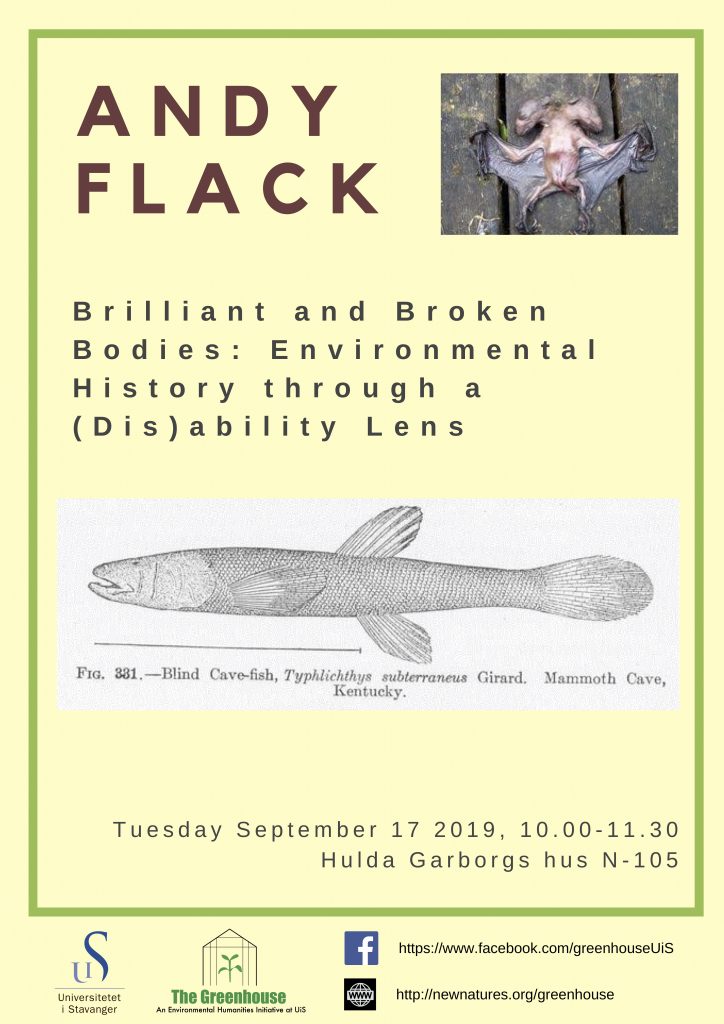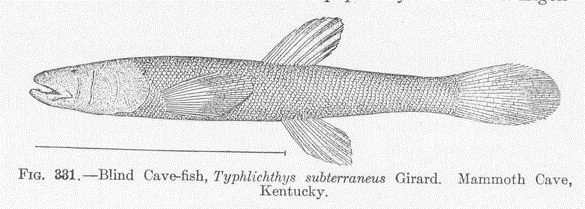Andy Flack, Lecturer in Modern and Environmental History at University of Bristol, will be joining us for our Greenhouse seminar series on Tuesday, September 17, 10-11:30, HG N-103. He will be giving a talk entitled “Brilliant and broken bodies: Environmental history through a (dis)ability lens”. All are welcome to attend.

Abstract
In recent years, environmental historians have turned towards an array of marginalized human identities. Gender, class, race, indigeneity – among others – have provided ways of thinking about the more-than-human world and its human inhabitants in ways that moved the field beyond the all-powerful white man and his domain. This is vital work. But environmental history – like many other areas of our wider discipline – has been afflicted by a prevailing (though admittedly not total) assumption of able-bodiedness which has prevented engagement with many of the concepts and concerns at the heart of Disability Studies. This paper will present a radical manifesto for ways in which environmental historians might work with Disability Studies in order to consider the histories of humans, nonhumans and the natural worlds in which they dwell in ways that highlight and historicise ideologies and material engagements with non-normativity. These include histories of more-than-human ‘super’ sensory systems, histories of ‘broken’ bodies and ‘defective’ ecosystems, and changing understandings of the ways in which bodies and their environments cohere to allow beings to thrive on the one hand, or experience exclusion and persecution on the other. The paper will end with a brief reflection on the possible risks of bringing environmental history and Disability Studies together in the radical ways suggested here.
About our speaker
Andy Flack is an environmental historian at the University of Bristol, specialising in animal history as well histories of the senses and emotions. His first tranche of work related to histories of captivity in the Anglophone world and engaged with theorisations of human-animal relationships including animal agency, zoonotic disease, and the role of technologies in mediating relationships between human and nonhuman animals. This work culminated in the publication of his first book – The Wild Within – in 2018, which used the Bristol Zoo as a window through which to examine changing human-animal relationships across the span of modernity. Andy is now working on two different but connected projects. The first is an animal history of the nocturnal world, while the second is a project that connects animal, environmental and disability history, beginning with an analysis of the natural histories of dark-dwelling animals.
